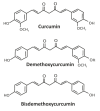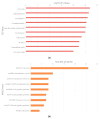Tackling Atherosclerosis via Selected Nutrition
- PMID: 35897799
- PMCID: PMC9368664
- DOI: 10.3390/ijms23158233
Tackling Atherosclerosis via Selected Nutrition
Abstract
The development and pathogenesis of atherosclerosis are significantly influenced by lifestyle, particularly nutrition. The modern level of science and technology development promote personalized nutrition as an efficient preventive measure against atherosclerosis. In this survey, the factors were revealed that contribute to the formation of an individual approach to nutrition: genetic characteristics, the state of the microbiota of the gastrointestinal tract (GIT) and environmental factors (diets, bioactive components, cardioprotectors, etc.). In the course of the work, it was found that in order to analyze the predisposition to atherosclerosis associated with nutrition, genetic features affecting the metabolism of nutrients are significant. The genetic features include the presence of single nucleotide polymorphisms (SNP) of genes and epigenetic factors. The influence of telomere length on the pathogenesis of atherosclerosis and circadian rhythms was also considered. Relatively new is the study of the relationship between chrono-nutrition and the development of metabolic diseases. That is, to obtain the relationship between nutrition and atherosclerosis, a large number of genetic markers should be considered. In this relation, the question arises: "How many genetic features need to be analyzed in order to form a personalized diet for the consumer?" Basically, companies engaged in nutrigenetic research and choosing a diet for the prevention of a number of metabolic diseases use SNP analysis of genes that accounts for lipid metabolism, vitamins, the body's antioxidant defense system, taste characteristics, etc. There is no set number of genetic markers. The main diets effective against the development of atherosclerosis were considered, and the most popular were the ketogenic, Mediterranean, and DASH-diets. The advantage of these diets is the content of foods with a low amount of carbohydrates, a high amount of vegetables, fruits and berries, as well as foods rich in antioxidants. However, due to the restrictions associated with climatic, geographical, material features, these diets are not available for a number of consumers. The way out is the use of functional products, dietary supplements. In this approach, the promising biologically active substances (BAS) that exhibit anti-atherosclerotic potential are: baicalin, resveratrol, curcumin, quercetin and other plant metabolites. Among the substances, those of animal origin are popular: squalene, coenzyme Q10, omega-3. For the prevention of atherosclerosis through personalized nutrition, it is necessary to analyze the genetic characteristics (SNP) associated with the metabolism of nutrients, to assess the state of the microbiota of the GIT. Based on the data obtained and food preferences, as well as the individual capabilities of the consumer, the optimal diet can be selected. It is topical to exclude nutrients of which their excess consumption stimulates the occurrence and pathogenesis of atherosclerosis and to enrich the diet with functional foods (FF), BAS containing the necessary anti-atherosclerotic, and stimulating microbiota of the GIT nutrients. Personalized nutrition is a topical preventive measure and there are a number of problems hindering the active use of this approach among consumers. The key factors include weak evidence of the influence of a number of genetic features, the high cost of the approach, and difficulties in the interpretation of the results. Eliminating these deficiencies will contribute to the maintenance of a healthy state of the population through nutrition.
Keywords: animal models of human atherosclerosis; atherosclerosis; chrono-nutrition; epigenetics; gastrointestinal microbiota; nutrient; nutrigenetics; nutrigenomics; nutritional genetics; personalized nutrition.
Conflict of interest statement
The authors declare no conflict of interest.
Figures


















References
Publication types
MeSH terms
Substances
Grants and funding
LinkOut - more resources
Full Text Sources
Medical

